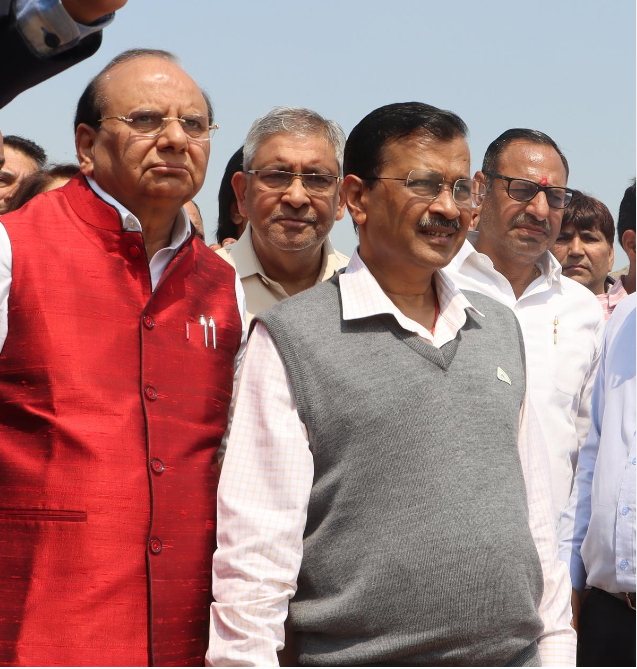Delhi Pollution:
The issue of pollution in Delhi has once again come to the forefront, with Lieutenant-Governor V.K. Saxena criticizing Chief Minister Arvind Kejriwal over a recent report labeling Delhi as the most polluted capital city in the world. While the L-G termed the situation a “national shame,” the AAP government rebuts the claims, citing reductions in pollution levels. This ongoing debate underscores the complexity of addressing environmental challenges in urban centers and the need for collaborative efforts to combat pollution effectively. 
The recent report highlighting Delhi’s status as the most polluted capital city in the world raises significant concerns about the city’s environmental health. The findings suggest that despite efforts to address pollution, Delhi continues to grapple with high levels of air and water pollution, posing serious risks to public health and well-being.
L-G’s Criticism of Kejriwal: In his letter to Chief Minister Kejriwal, Lieutenant-Governor Saxena expressed disappointment over Delhi’s poor ranking in terms of pollution levels. He emphasized the need for urgent action to address the issue, labeling it a matter of “national shame” and “collective concern.” The L-G’s criticism underscores the gravity of the situation and the imperative for government intervention to mitigate pollution.
In response to the L-G’s criticism, the AAP government defended its record on pollution control, citing initiatives and measures implemented to reduce pollution levels in the city. The government highlights improvements in air quality and reduction in pollution-related health issues as evidence of its efforts to tackle the problem. However, critics argue that more needs to be done to address the root causes of pollution and ensure sustained progress.
Addressing pollution in Delhi poses numerous challenges, including vehicular emissions, industrial pollution, construction activities, and agricultural residue burning. To effectively combat pollution, comprehensive strategies are needed, encompassing regulatory measures, public awareness campaigns, investment in cleaner technologies, and collaboration between government agencies and stakeholders. The involvement of citizens is crucial in the fight against pollution. Public participation in initiatives such as tree planting drives, waste management programs, and advocacy for sustainable practices can contribute significantly to improving environmental quality and reducing pollution levels. Empowering communities to take ownership of their environment fosters a sense of responsibility and collective action.
Policy interventions play a vital role in addressing pollution at the systemic level. Measures such as stricter emission standards for vehicles, regulations on industrial emissions, promotion of renewable energy sources, and incentivizing green technologies are essential for curbing pollution and promoting sustainable development.
Pollution is not confined to national borders, and global cooperation is necessary to tackle transboundary environmental issues effectively. Collaborative efforts between countries, sharing best practices, and implementing joint initiatives can lead to more significant impact and positive outcomes in combating pollution on a global scale. The debate surrounding Delhi’s pollution highlights the urgent need for action to address environmental challenges in urban centers. While the L-G’s criticism underscores the severity of the situation, the AAP government’s defense reflects ongoing efforts to tackle pollution. Moving forward, concerted efforts, involving government, citizens, and stakeholders, are essential to combat pollution effectively and create a healthier, more sustainable future for Delhi and beyond.





